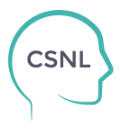Selected Media Coverage
You share everything with your bestie. Even brain waves. The New York Times.
The Secrets of Friendship. CBC (“The Nature of Things” documentary).
How your brain's chemistry affects the friends you choose. The Today Show/NBC.
Define the relationship. NPR ("Innovation Hub," WGBH & Public Radio International).
Brain scans reveal that friends really are on the same wavelength. Los Angeles Times.
Great minds think alike: Friends’ brains work in similar ways, neuroimaging shows. Newsweek.
Friends are similar deep in the brain. Psychology Today.
A brainy new way of looking at friendship. Pacific Standard.
Brain science confirms you and your best friend really do think alike. Vice.
What makes us vibe. Scientific American.
Locked in: What neuroscience is telling us about friendships. NPR ("AirTalk," KPCC).
Friends share more than interests, their brains are similar too. CBC Radio ("Quirks & Quarks").
Friendship on the brain. American Association for the Advancement of Science (AAAS) Science Update
podcast.
Similarities in brain activity could be used to predict friendships. The Independent.
Friends really are on the same wavelength, brain scans show. The Telegraph.
Your brain can predict who you'll be friends with depending on how you see the world. International Business Times.
If you hit it off, brain coupling's going on. New Zealand Herald.
A brain scan can reveal which people you’re friends with. New Scientist.
Your brain activity can reveal who your friends are. Big Think.
Your brain reveals who your friends are. Science Daily.
Brain scans reveal who your true friends are. Live Science.
Can brain scans reveal who your friends are? WebMD.
What this video will do to your friends' brains. SciShow (YouTube).
Scientists say they can predict who you’re friends with based on brain patterns alone. Business Insider.
Scientists can tell who your real friends are by scanning your brain. The Sun.
Friends and strangers mess with your head. Cosmos.
The brain boasts its own social network. Scientific American.
It's not all in your head. The Boston Globe.
How universal is body language? Psychology Today.
How does the human brain tackle problems it did not evolve to solve? Science Daily.
Human brain adapts to modern problem-solving with skills learned through evolution. Medical Daily.
One brain area processes time, space and social relationships. Scientific American Mind.
How our brains go the distance. National Geographic.
In the brain, distances in space, time, and social relationships look the same. Popular Science.
First evidence of common brain cod for space, time, distance. Science Daily.
Thinking in distance. Northeast Public Radio.
